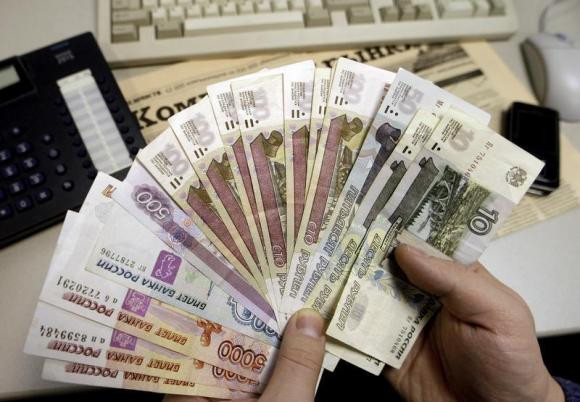Rouble Continues Free Fall Against Dollar and Euro Hitting Multi-Year Lows

The rouble continues to plunge, hitting new multi-year lows versus the dollar and the euro.
The Russian currency is being pulled down by lower oil prices and trade sanctions even as most currencies have managed to reverse some of their recent losses helped by the broad retreat in the dollar.
The rouble is headed for its fifth straight monthly loss, and was 16% down from end-June at the USD/RUB multi-year high of 40.69 on Tuesday. So far this year, the Russian currency has weakened more than 19% against the greenback.
Against the euro, the rouble has fallen to an all-time low of 51.63, making a 12.4% decline. The rouble is headed for its fifth straight monthly loss against the common currency too.
Russian authorities have been intervening regularly in the market to check volatility and reiterating their stance that the country is on track to freely float the rouble by next year, but there is no let up in the currency's free fall.
Elvira Nabiullina, the central bank governor, told the country's lawmakers that the bank had spent around $6bn defending the rouble in the past 10 days. She said the situation on the currency market was under control.
In March, the central bank sold some $25bn worth of foreign currency to support the rouble. It has since relaxed its intervention rules to widen the rouble's trading "corridor" of rates against a basket of currencies and reduce the amount it spends before shifting the boundaries of the corridor.
The central bank's stated goal is to shift away from a policy of supporting the rouble to place greater emphasis on bringing down stubbornly high inflation.
As part of this shift, the bank will abandon its automatic interventions at the edges of the rouble's trading band against a dollar-euro basket but will still step in to defend the rouble when it sees fit.
China and Russia
Meanwhile, China and Russia are making headway in their plan to increase the use of the yuan and the rouble in settlements as the big neighbours find trade between them expanding despite the challenging global environment.
"This year when the situation in growth of international trade is acute and difficult between January and August the turnover between our two countries is growing dynamically. And this fact shows by itself that we have huge potential for cooperation," said China's Premier Li Keqiang, who visited Russia on Monday.
A Xinhua report on Li's Russian visit also said one of the topics of discussion was related to the $400bn natural gas supply deal that was signed back in May.
It has become imperative for Russia to increase energy sales to Asia as its relations with Europe, its main export market, have severely deteriorated over the Ukraine crisis.
"The situation in world finance is not the easiest one. Not all countries are developing fast and we have difficulties of our own. Nevertheless the major banks of our countries have reached an agreement to open credit lines for our joint projects," said Medvedev, Li's Russian counterpart.
© Copyright IBTimes 2025. All rights reserved.




















